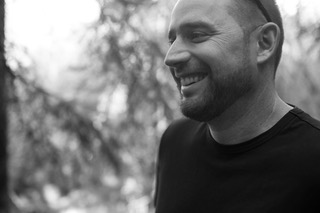by Cara Chalmers
Dear Cara,
I am writing to seek any advice you may have on sleep. As a mid-aged woman I have found myself struggling with sleep the past year or so. This doesn’t always look the same and therefore I find it difficult to pinpoint the cause for these sleep disturbances.
My sleep issues typically look one of two ways:
1) I am tired in the evening and I go to be at around 10pm and am able to fall asleep fairly quickly. However, at about 3am or 4am I wake up, my mind begins to race, and that is it for me because I am unable to fall back asleep.
Or,
2) I am tired in the evening and I go to bed at around 10pm, my mind begins to race and I am awake for hours. Sometimes I can fall asleep before midnight but other times this mind racing can last until the hours of the morning.
Both of these scenarios are very challenging for me as I am a professional and I need to be up and functioning 5 days a week for my job. I would estimate that I suffer from one of the above scenarios between 3-5 nights per week. Because of the lack of sleep I am exhausted and can become irritable and lose my patience quickly. I often have bags under my eyes and fantasize all day about when I can finally getting back into bed in the hope of falling asleep. However, once bedtime rolls around my brain can become ‘super-charged’ and sleep feels impossible.
I have tried several sleep apps with meditations and other strategies to try and relax. Unfortunately none of these seem to have any meaningful impact and I become frustrated at times with the costs of the accompanying subscriptions for these services. I have also done my research on Sleep Hygiene and I feel that I have very good habits around my bedtime routine, I’m not sure that there is much more I can be doing to promote this.
What am I missing?
Sincerely,
Exhausted in the Foothills
Dear Exhausted,
Oh dear, I feel tired just reading this! Being chronically tired is very challenging and can have major impacts on our day to day lives as well as our longer term physical and mental health outcomes. One of the most important things to understand about rest is that our sleep cycles are generally regulated by something called our Circadian Rhythm.
A Circadian Rhythm is the 24-hour, natural, internal clock in our brains that control our alertness and our sleepiness. This Rhythm is influenced by our exposure to light, particularly daylight, in our environment. These rhythms not only apply to humans but they have been widely observed and studied in animals and other organisms on the planet.
With this in mind, I think that it may be worthwhile for you to consider your exposure to daylight on a regular basis. I know that this can be tricky living as far north as we do here in the foothills of Alberta. Sometimes we need to get creative about this, especially during the winter months. Consider how much time, if any, you are incorporating exposure to sunlight into your daily routine. This can include direct exposure or exposure through a window in a house, office or even a vehicle. Timing can also be important when considering access to daylight – the earlier the better, to be precise. Exposure to light early in the day can help to set up and/or re-establish a good Circadian Rhythm.
Sounds simple, right? I know that getting the sleep we need can be far more challenging than just getting daylight on a regular basis. With that said, my other suggestion to you is to do an inventory of how physically active you are on a regular basis. Engaging in regular activity and keeping our bodies moving is, in my opinion, the BEST way to help us both fall asleep and stay asleep through the night. This can be as simple as a quick and brisk walk up and down the road or around the block. Walking is the most accessible and generally useful form of exercise humans can engage in, don’t underestimate its power! In my experience, no one ever regrets getting out for a walk when they can.
Tell yourself that you are going to experiment for 10 days and consider prioritizing exposure to daylight early and at other opportunities throughout the day. Then consider adding in some full body movement, your choice, but I think that a quick walk in the morning, at lunch, or after work when there is still daylight may be a way to kill two birds with one stone. At the end of this 10 days examine if and how your sleep may be changed.
If this strategy is not useful for you (or maybe even just as good measure) then I would recommend a conversation with your doctor. Family doctors can be excellent resources to help us explore and understand the impacts of sleep and why sleep may be so difficult for you at this time. Sleep is important and this could be related to other things.
Cara Chalmers, is a local writer, therapist and registered social worker living in Springbank, Alberta. Need some advice? Questions for Cara can be emailed to: cara@askcara.ca






















